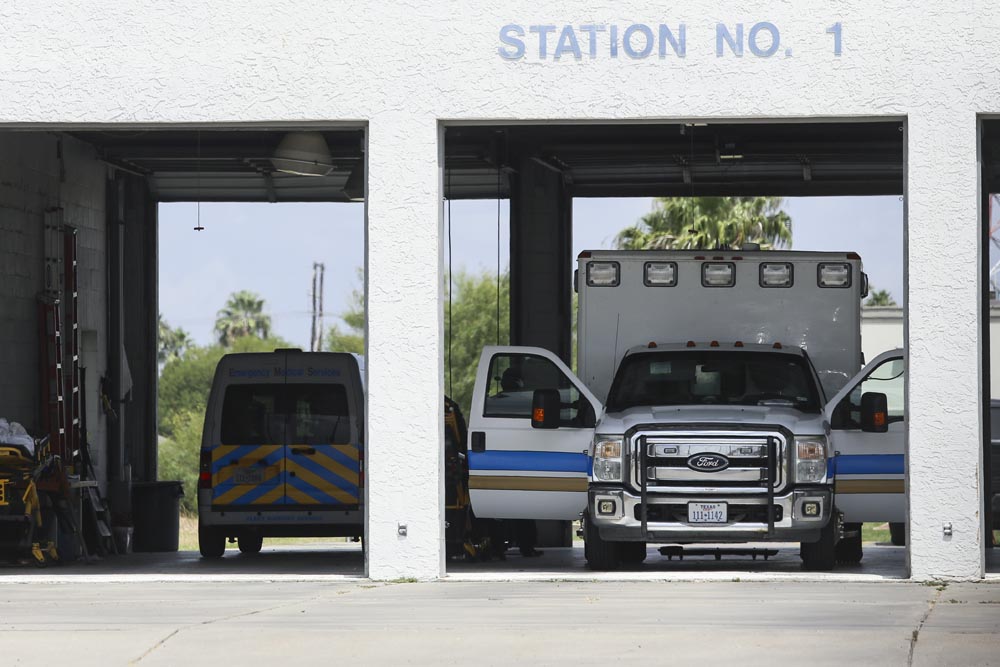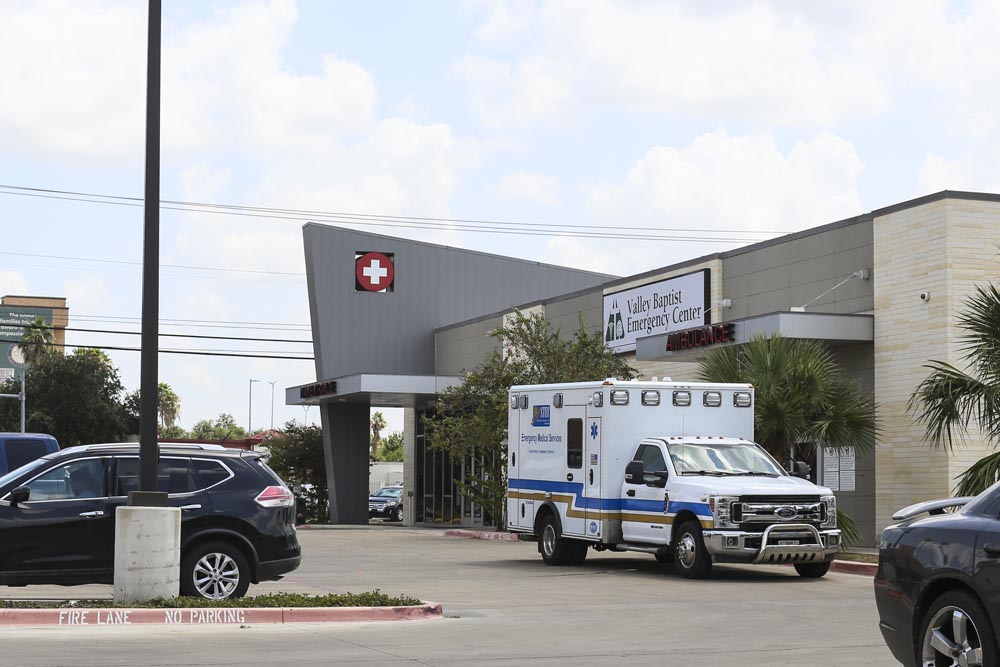HARLINGEN — For months, the city commission’s new majority has planned to revise an ordinance scrapping a clause giving the city’s ambulance company exclusive rights to provide service in town.
Earlier this week, commissioners held off on Commissioners Richard Uribe’s and Frank Puente’s proposal to amend the South Texas Emergency Care Foundation’s contract to allow outside ambulance companies into town.
During an hour-long closed-door meeting, commissioners met with interim City Attorney Mark Sossi to discuss the proposal Wednesday.
Now, some commissioners are focusing on STEC’s contract, which expires September 2022.
On Thursday, Puente said he believes STEC may not have complied with parts of its contract.
“We decided not only to look at the city ordinance but the contract as well to see if they’re abiding by their end of the deal,” he said. “There are provisions and requirements that STEC has to comply with in the contract and I don’t think they’ve complied with their end of the contract.”
Randy Whittington, the attorney representing STEC, strongly denied the charge.
“As far as I know, STEC has complied with all of the requirements in the contract,” he said. “I don’t know what he’s referring to.”
During months of debate, commissioners have argued some residents have complained of slow response times to non-emergency calls while ambulances waited for short-staffed hospitals to open patient beds during the coronavirus pandemic.
“A handful of complaints during the pandemic have become the driving force,” Whittington said.
Commissioners have also argued competition could help bring down rates.
During the summer, a McAllen ambulance company offered to transport a nursing home resident to a Houston hospital for $2,700 while STEC was charging $4,500, Commissioner Rene Perez said.
Like many ambulance companies, STEC counts on its non-emergency transport service to generate revenue used to operate its emergency ambulance calls.
For weeks, STEC officials have warned commissioners a move to allow outside ambulance companies into town to offer lucrative non-emergency transports would eat into revenue used to fund its emergency medical services.
Such a move could force the city to help foot the bill for emergency ambulance service, Whittington said.
Wednesday’s meeting followed days of discussions between commissioners and STEC officials, he said.

“They have met with a number of commissioners over the last couple of days,” he said, referring to STEC officials. “I think some (commissioners) understand this is complicated. Nobody knows what the consequences might be — what might happen. I hope they’re concerned there might be consequences to what they do. I haven’t heard any commissioner say they’ll stand up and fund 911 services.”
During discussions, STEC’s argued a move to open the city to outside ambulance companies offering non-emergency transport would cut $600,000 to $1.2 million in revenue, forcing the company to lay off 14 employees, Puente said.
In a heated, two-hour workshop last month, Gavino Sotelo, a member of STEC’s board of directors, warned such a move could strip STEC of as much as half its revenue.
Standing behind STEC
Meanwhile, Mayor Chris Boswell and Commissioner Michael Mezmar continue to stand behind the nonprofit city leaders founded more than 40 years ago to provide ambulance service here.
“I support the ambulance service we have,” Boswell said Thursday. “It’s such a great deal for the city to have a first-class ambulance service and not have to pay for it.”
For years, the city paid STEC as much as $500,000 a year to provide ambulance service here, Boswell said.
Then 10 years ago, the company began charging its patients, instead.
About four years ago, STEC boosted its rates to range from $795 for basic life support to $1,220 in the area where about half its patients are on Medicare and Medicaid, which reimburses about a third of billings, Leonard Callier, the company’s deputy executive director, said, describing rates as based on “one of the lowest fee schedules in the Valley.”
Now, the nonprofit which offers ambulance service across most of Cameron County, stations eight to 11 ambulances in the Harlingen area, officials said.
Agreements with other regional emergency services companies offer the city back-up ambulance service, they said.
Meanwhile, STEC’s annual $4.5 million payroll funds the positions of 90 employees, including 64 paramedics and emergency medical technicians whose salaries range from $48,000 to $66,000.




